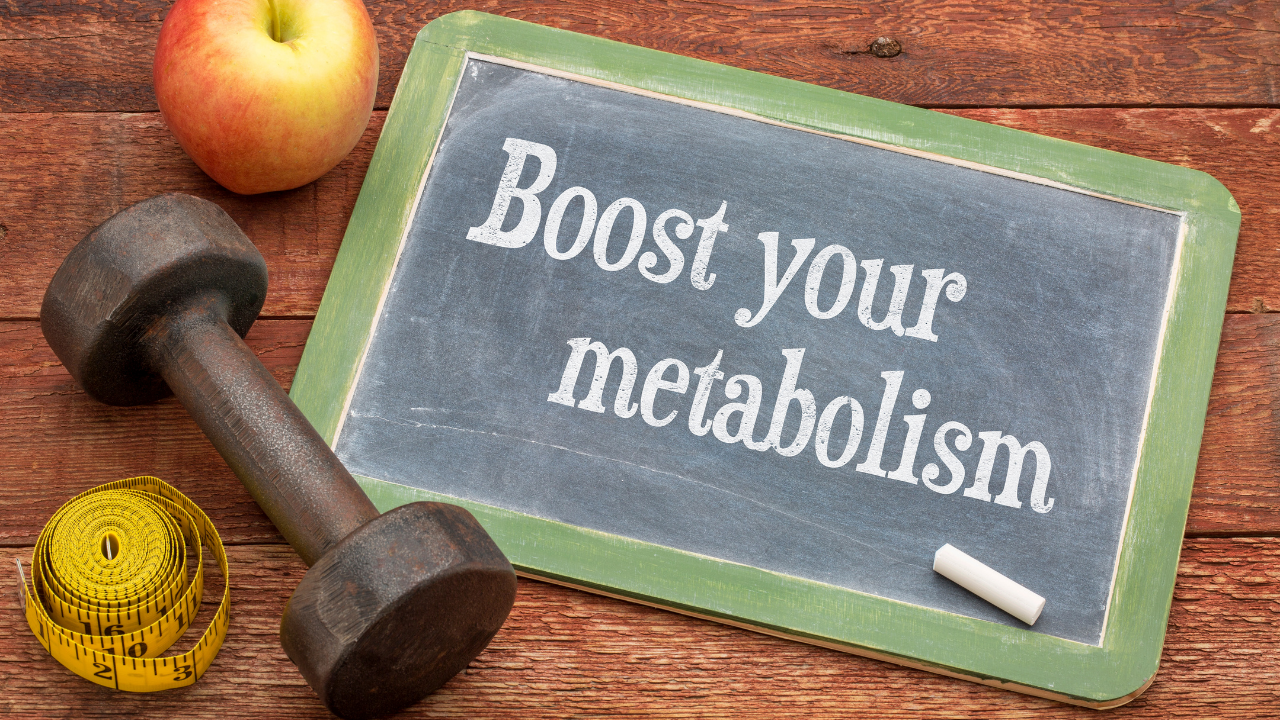The No Frills/ No Nonsense Way to Support a Faster Metabolism

A person’s metabolism is the rate at which their body burns calories for energy. The speed of metabolism depends on a variety of factors, including age, sex, body fat, muscle mass, activity level, and genetics.
While a person has no control over the genetic aspects of their metabolism, there are some ways to help speed up the rate at which the body processes calories, one of the main ones being to simply build more lean muscle mass.
The Science
You have probably heard that muscle burns more calories than fat – this is true. Muscle is more metabolically active than fat, and building muscle can help increase your metabolism. This means you will burn more calories each day, even at rest! Lifting weights will also help you retain muscle and combat the drop in metabolism that can occur during weight loss.
While it’s true that as you age you naturally lose muscle strength, bone density, and your body composition shifts from muscle to fat, research shows exercise training at any age results in positive gains in muscle mass, muscle strength, bone density, and improvements to overall health. That’s right... regular resistance training can help counteract this effect!
How to Incorporate Strength or Resistance Training
Strength training is a versatile type of workout that you can do almost anywhere. While going to the gym and attending HITT classes are a popular option, you can also get the same benefits in the comfort and privacy of your home if you prefer that instead. The key is to find a strength training exercise that you actually enjoy doing because you’ll stick to it long-term versus hopping on the HITT bandwagon and dreading every class. With strength training, you move your body against some type of resistance, such as:
- your body weight
- free weights, like dumbbells or barbells
- resistance bands, also known as resistance tubing or workout bands
- resistance machines, like cable machines, single-exercise machines, or multi-gym systems
Aim to do resistance or strengthening exercise at least twice a week.
How Protein Can Help Support Lean Muscle Development
Protein is the building block of your muscles. Therefore, eating adequate amounts of protein helps you maintain your muscle mass and promotes muscle growth when you do strength training. If you’re physically active, lifting weights, or trying to gain muscle, you need to make sure you’re getting enough protein. Keeping protein intake high can also help prevent muscle loss during weight loss. Here are some practical ways to incorporate protein into diet:
- When eating a meal, eat the protein source first, especially before you get to the starches.
- Eat high-protein snacks such as nuts/seeds, hard-boiled eggs, lean jerky, greek yogurt, etc.
- Add protein powder to smoothies, oatmeal, yogurt, cereal, and pancake/waffle batter.
- Include a high-protein source at each meal. Ex; for breakfast include eggs or yogurt, for lunch include grilled chicken on top of a salad, for dinner include lean ground beef to your pasta.


